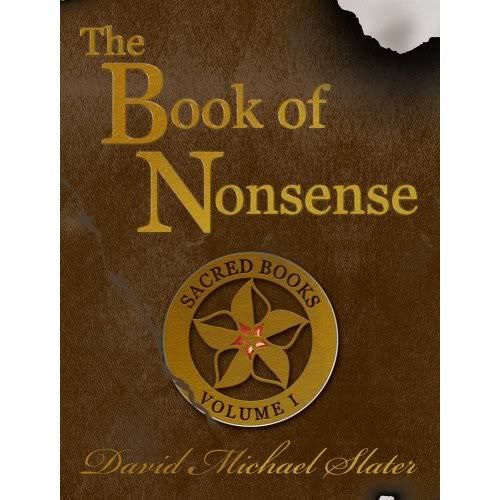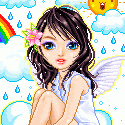Of course, questioning lesbian or bi teenagers can always head over to the gay and lesbian section at their local bookstore if they live in an urban or suburban area, since most of the massive chain stores like Barnes and Noble and Borders now carry these sections...
This option also doesn't help the large number of young teenage girls who don't yet know they're lesbian or bisexual - kids like me, who manage to make it all the way through high school feeling a little different but not yet able to put a finger on what it is. A YA book about well-adjusted lesbian teens might help them name it sooner - and begin to build a foundation for understanding that lesbians/bi women can be happy, too.
- afterellen.com
Let's talk for a minute about life imitating art. I'm sure everyone can point to a book that affected them so strongly that they remember their exact reaction to it years after. For me, I remember reading A Tale of Two Cities by Charles Dickens and being completely blown away. I cried for hours after I read the last chapter -- mostly because I had fallen in love with Sydney Carton. I had similar reactions to The Phantom Tollbooth and Animal Farm.
I would have liked to have realized that I am bisexual because of a book. Unfortunately, that wasn't the case for me. I discovered bisexuality through a GLBT awareness site, which I was exposed to during my brief time running the concession stand for the GSA dance in sophomore year. I mean, Jessica Alba helped. (I LOVE YOU JESSICA.) But for the most part, the only information I received about sexuality tended on the extremes of the spectrum -- homosexual or heterosexual. There was no middle ground.
At fifteen, I'd discovered many of the authors who I feel have influenced my 'coming-of-age.' I read Dickens, Lewis Carroll, Garth Nix, Terry Pratchett, Tamora Pierce, and reread Norton Juster and C.S. Lewis. Besides the less-than-palatable revelations about Carroll's personal life, the majority of these authors had, unconsciously or not, maintained heteronormativity in their novels. When other sexualities were mentioned, they were kept to the fringes.
I found GLBT themes in webcomics and fanfiction. (The trend I noticed was, webcomics were generally f/f and fanfiction was generally m/m.) The first mention of an openly bisexual character I'd ever seen was in the webcomic Khaos Komix. Later, I found that Scrubs, a show from which I draw many life lessons, thank you very much, addressed GLBT themes with the same aplomb they did everything else, and that helped the inner Sophie rally against heteronormativity.
However, I would have preferred to have read it in a book.
The fact is, that although homosexual characters are becoming more and more common in YA fiction, there are still comparatively few bisexual characters. Afterellen.com stated, in a more recent article, that "books about gay male teens continue to outnumber those about lesbian and bisexual girls, and books about bisexual girls and queer girls of color number in the single digits." (See here.) I think this phenomenon has direct roots in our society's continued difficulty in outwardly addressing and talking about female sexuality. (A boy who has many sexual partners is a player, a girl who has many sexual partners is a slut. She is a double-triple-quadruple slut if she has sex with male and female partners.) I think we've come to a point where male sexuality can be openly discussed, however, female sexuality is still repressed. (Brief side note here: I can't remember the last time I read about a bisexual male character in a YA novel! Obviously male sexuality is repressed in other ways, but honestly, we're all being repressed all over the place, and I don't particularly want to get into that now.)
So here is my question for all of you: What are some YA novels featuring bisexual characters that you have read? If you want to suggest novels with homosexual characters as well, I'm not going to stop you - but I want to read about bis. :P The suggested books are going to be placed in a sidebar list on this page for future reference.



 Name: Bethany Griffin
Name: Bethany Griffin Name: Hannah Moskowitz Esq. (I have no idea what esq. means, but I like it.)
Name: Hannah Moskowitz Esq. (I have no idea what esq. means, but I like it.) Name: Sage
Name: Sage Name: Sasha Vivelo
Name: Sasha Vivelo Name: Suzanne Young
Name: Suzanne Young